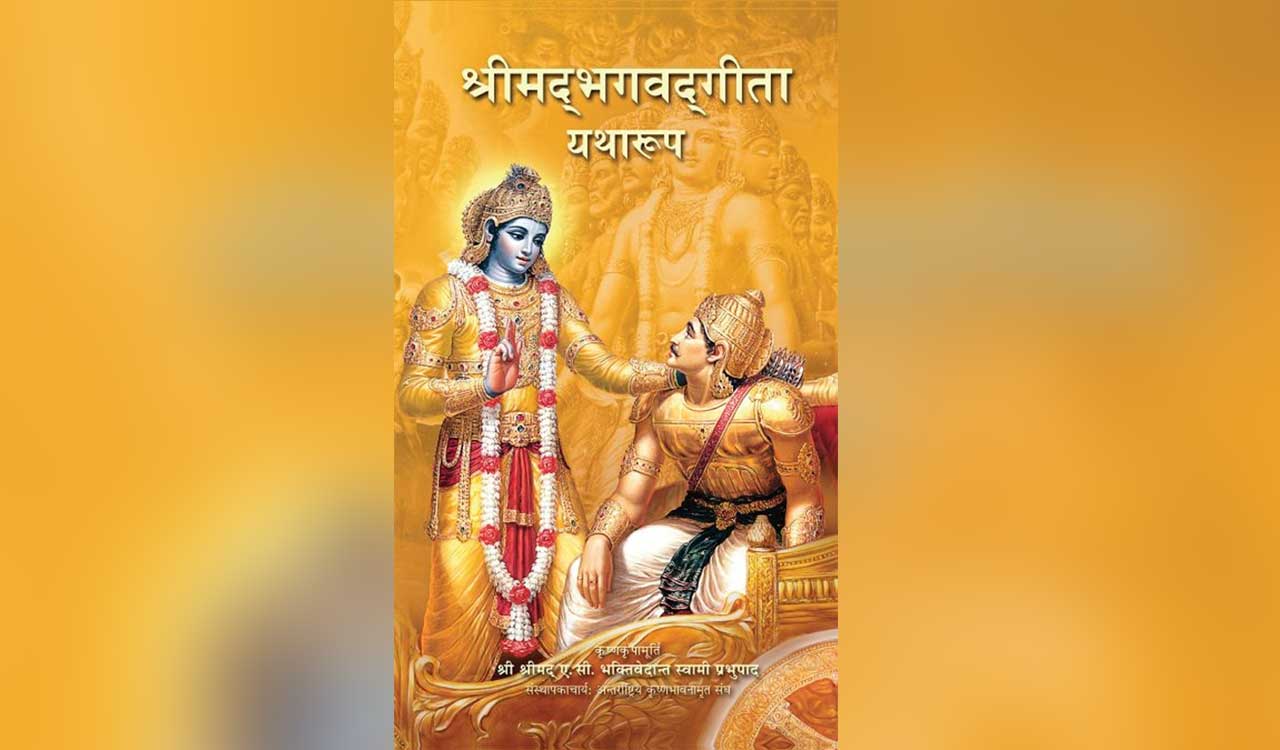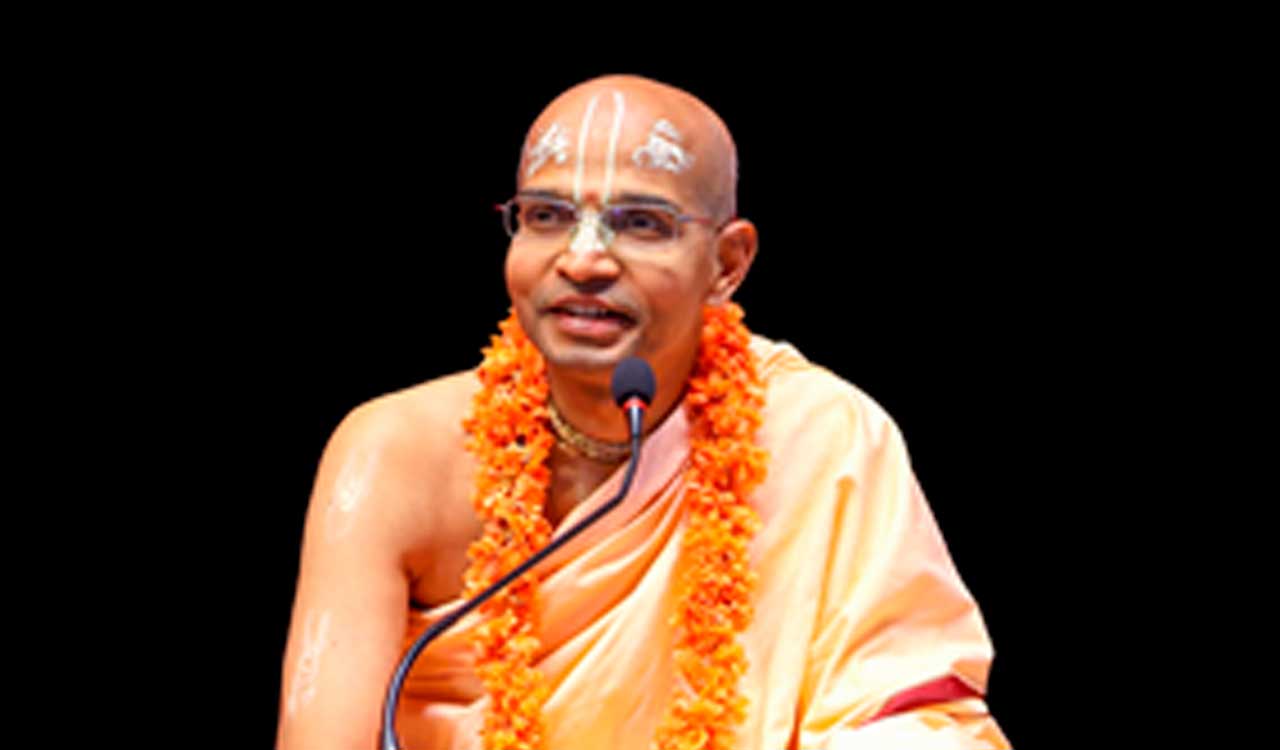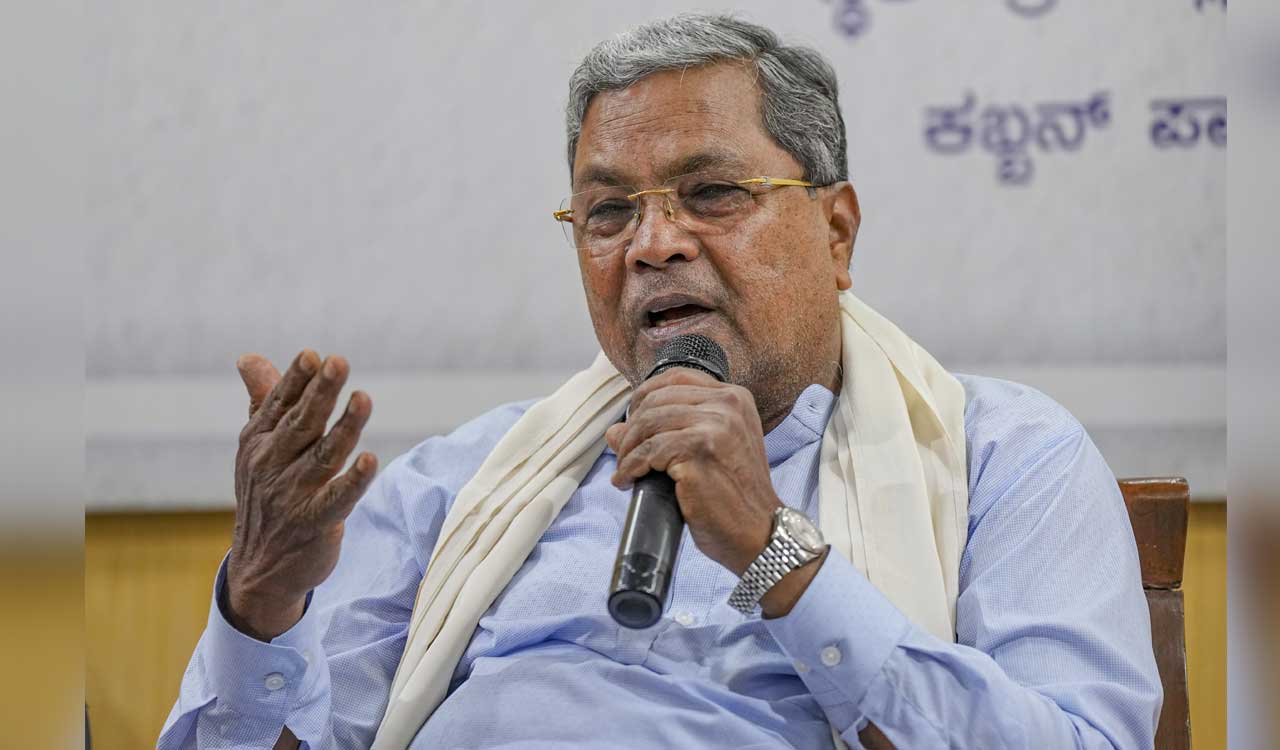Bhagavad Gita ‘nectar of wisdom’ for modern world, say Chinese scholars
At a symposium in Beijing, Chinese scholars hailed the Bhagavad Gita as a “nectar of wisdom” and “miniature history of Indian civilisation.” They said its teachings on duty, detachment, and harmony remain deeply relevant to modern life and global challenges.

Beijing: The Bhagavad Gita is the “nectar of wisdom” and a “miniature history of Indian civilisation” offering answers to the spiritual and material dilemmas faced by people in modern times, noted Chinese scholars said articulating a rare public reverence for the ancient Indian scripture.
Speaking on Bhagavad Gita at a symposium on ‘Sangamam – A Confluence of Indian Philosophical Traditions’ organised by the Indian Embassy here on Saturday, Chinese scholars termed Gita as a philosophical encyclopaedia of India, highlighting its timeless insights on achieving harmony between material and spiritual pursuits.
The star speaker at the event was 88-year old Prof Zhang Baosheng, who has translated Bhagavad Gita into Chinese.
Terming Gita as a spiritual epic and a philosophical encyclopaedia of India, he said its translation was necessary because it revealed India’s spiritual outlook — its ideas of duty, action, and detachment — which still moulds Indian life today.
Recounting his experiences in India (1984–86) from Cape Comorin (now known as Kanniyakumari) in the south to Gorakhpur in the north, Prof Zhang said everywhere, he sensed Lord Krishna’s presence — a living moral and spiritual idol.
Through such encounters, Prof Zhang said he saw that Gita is not a remote scripture but a living influence on Indian psychology, morality, and social life — a “cultural anthropology” of the Indian soul.
He called the Bhagavad Gita “a miniature history of Indian civilisation itself — a dialogue that captures its ethical crisis, philosophical synthesis, and religious rebirth.” Bhagavad Gita struck a chord with the rest of the world, including in China, leading to its translation into all major languages, he said.
In his address, Prof Wang Zhi-cheng, Director of the Centre for Oriental Philosophy Research at the Zhejiang University said Bhagavad Gita, a dialogue from an ancient Indian battlefield over 5,000 years ago, transcended time to answers the anxieties and confusions people face today.
Terming Gita as a “nectar of wisdom,” he said, “Krishna’s answers were engraved into the 700 verses of the Bhagavad Gita. These words are not outdated maxims, but ‘spiritual keys’ that have crossed millennia.” He outlined to the mostly Chinese audience the “core” of three “wisdoms to solve life’s problems” — which are the Karma Yoga, Sankhya Yoga, and Bhakti Yoga — propounded by Krishna which provide a way out to deal with the problems faced by the people in the modern world.
Highlighting the famous words of Krishna, “whenever dharma (righteousness) declines and adharma (unrighteousness) prevails, I manifest myself on earth,” he said, “The wisdom of Gita is the light that ‘manifests’ when we are lost”.
“When you feel anxious, remember to ‘let go of attachment to results,’ when you feel lost, remember to ‘recognise your true self,’ when you feel empty, remember to ‘give more’,” he said.
Prof Yu Longyu, Director of Centre for Indian Studies, Shenzhen University said the key points emerged from the studies carried out by various Chinese scholars was that India, as a great civilisation, possesses a profound cultural and philosophical heritage that deserves deep study and transmission.
“In modern times, China’s leading scholars have often embodied ‘threefold learning — Chinese, Western, and Indian’. I therefore call upon Chinese scholars to study Indian culture with dedication, contributing to China’s rejuvenation, to India–China harmony, and to peace in the world,” he said.
Earlier, welcoming the array of Chinese scholars, Indian Ambassador to China Pradeep Kumar Rawat said it was an extension of last year’s conference on Ramayana held by the Embassy.
“Over millennia, India’s philosophical traditions have sought to answer the most fundamental questions: ‘What is truth? What is the nature of reality? How do knowledge and action lead to ultimate freedom?’ “The darsanas or philosophical schools – from Nyaya’s logic to Yoga’s discipline, from Vedanta’s introspection to Buddhism’s compassion – present diverse pathways to the same quest for wisdom and harmony,” Rawat said.
Related News
-
Couple elected as chairperson and vice-chairperson of Nirmal Municipality
7 hours ago -
Telangana municipal polls: BRS pockets 18 municipalities
7 hours ago -
BJP draws sharp criticism for meeting Congress leaders in Hyderabad
7 hours ago -
Inorbit Mall Cyberabad hosts Valentine specials, interactive games and live performances
8 hours ago -
Jangaon chairperson election postponed amid high drama
8 hours ago -
Editorial: Showcasing India’s tech prowess
8 hours ago -
Health Minister orders suspension of absent Jogipet doctors
8 hours ago -
Opinion: India’s new labour codes prioritise capital over labour
8 hours ago




